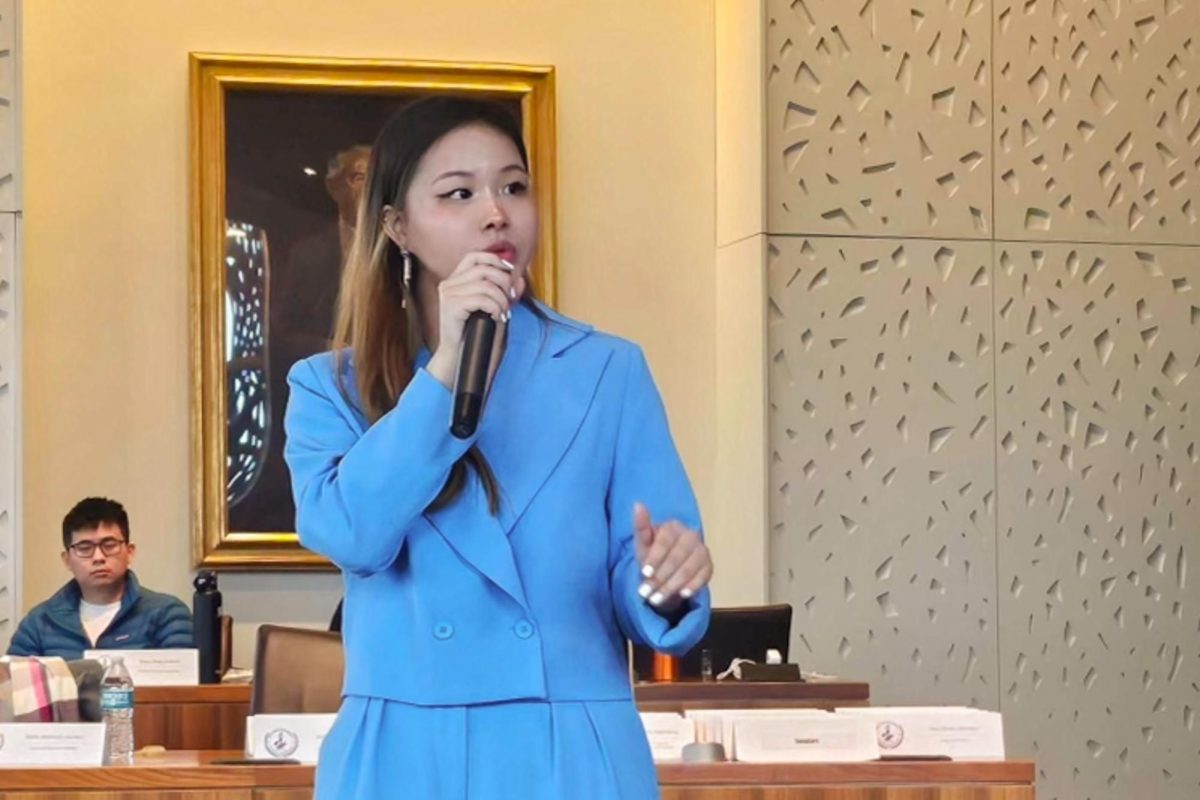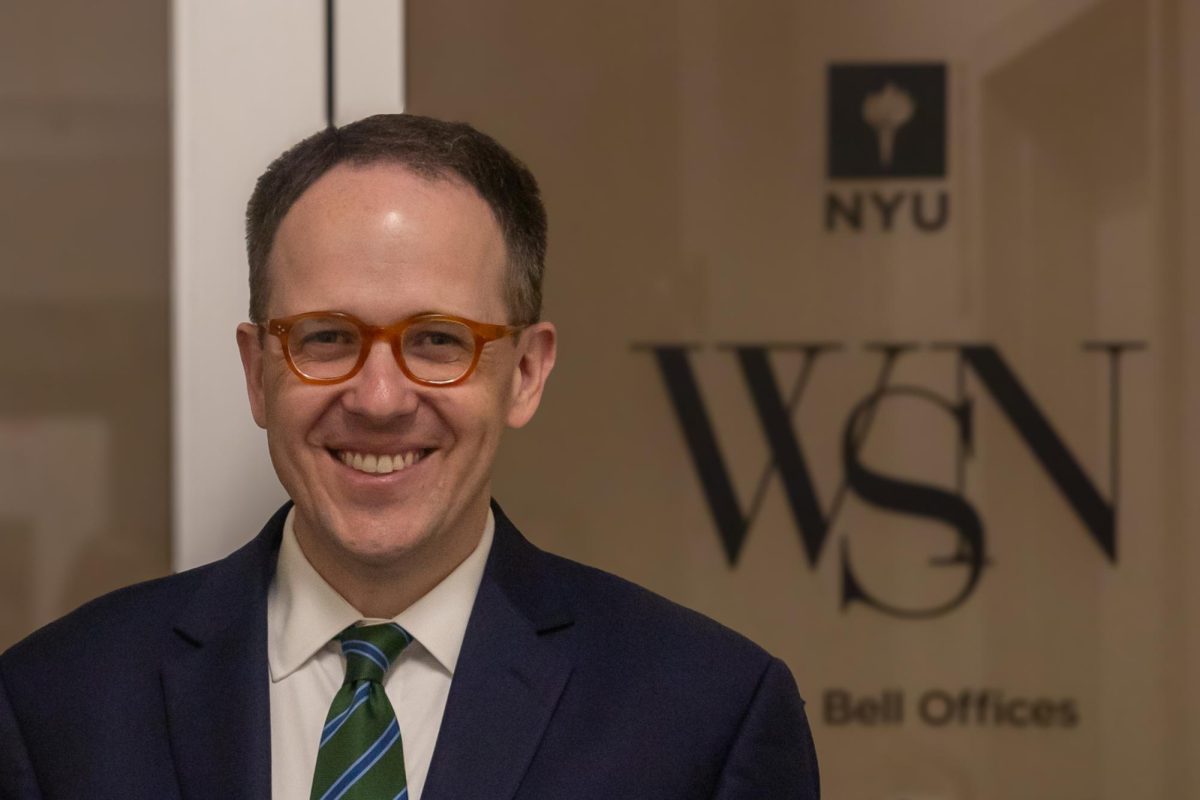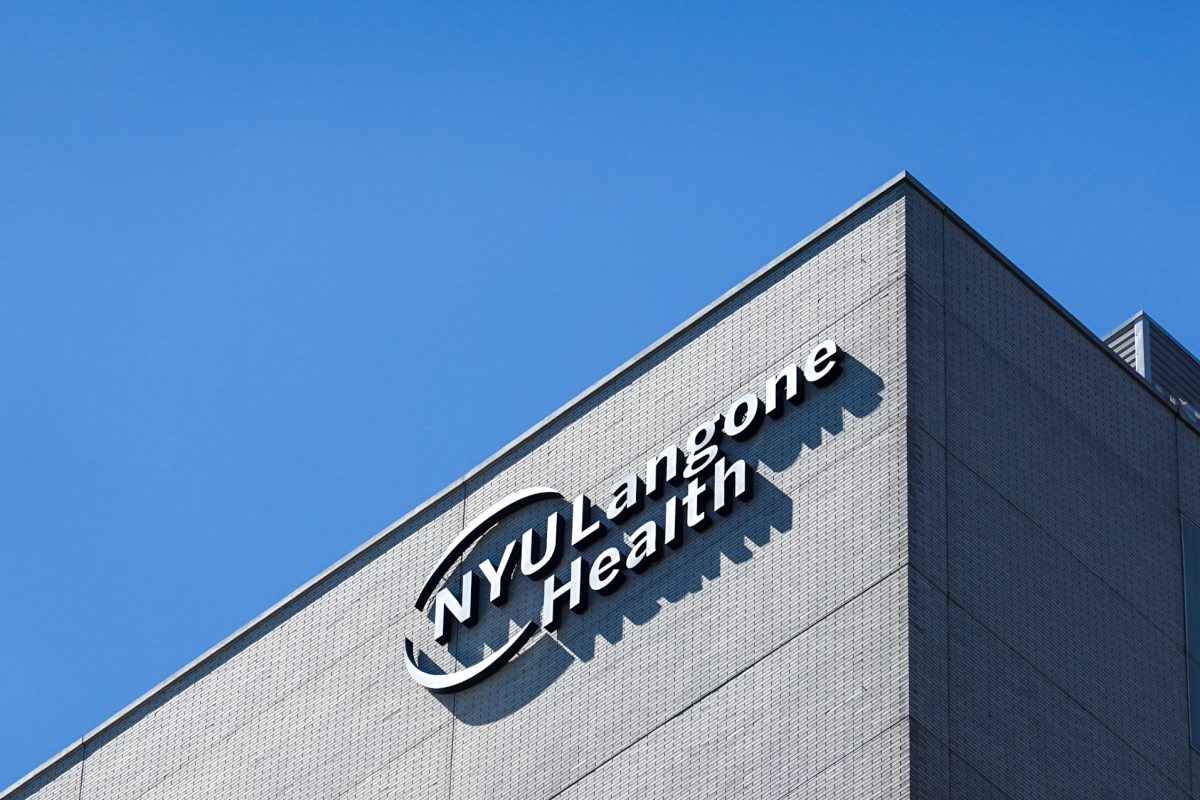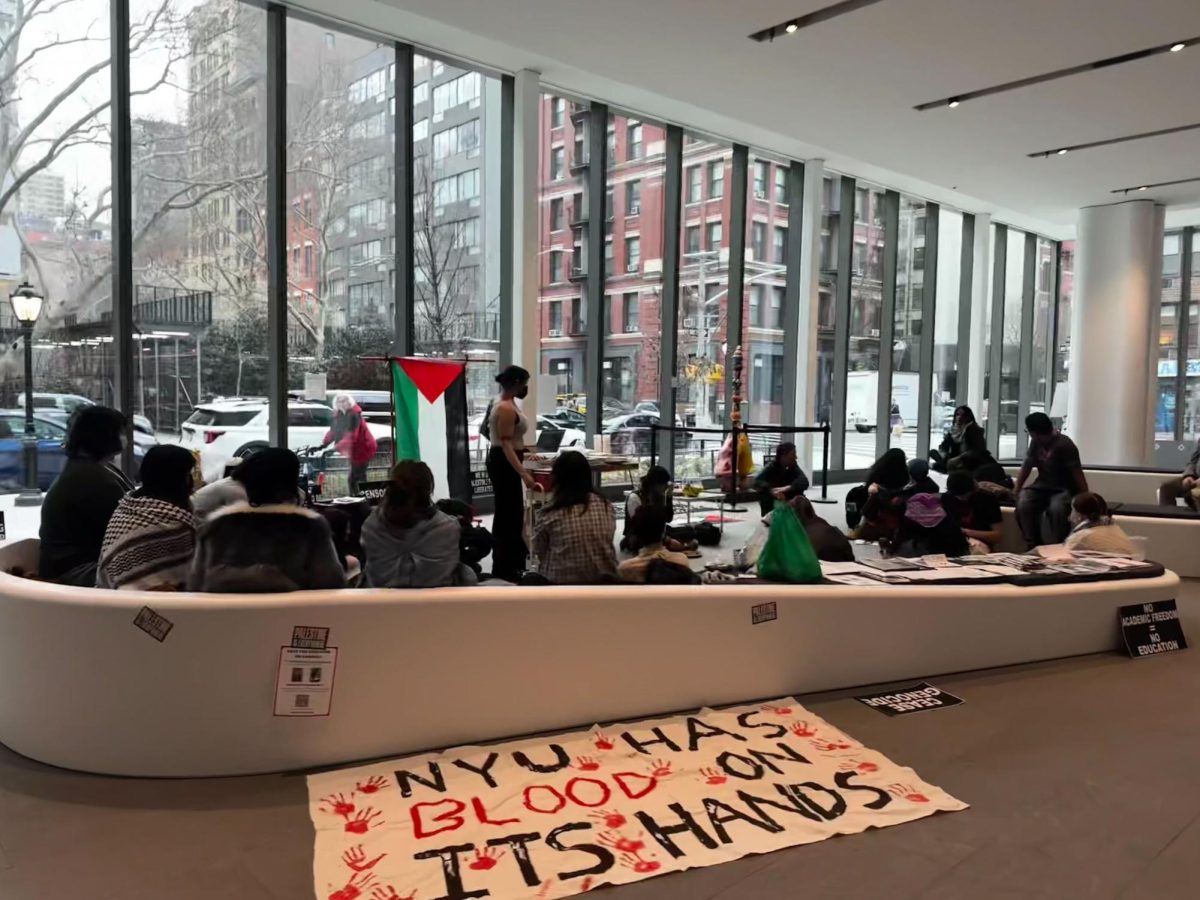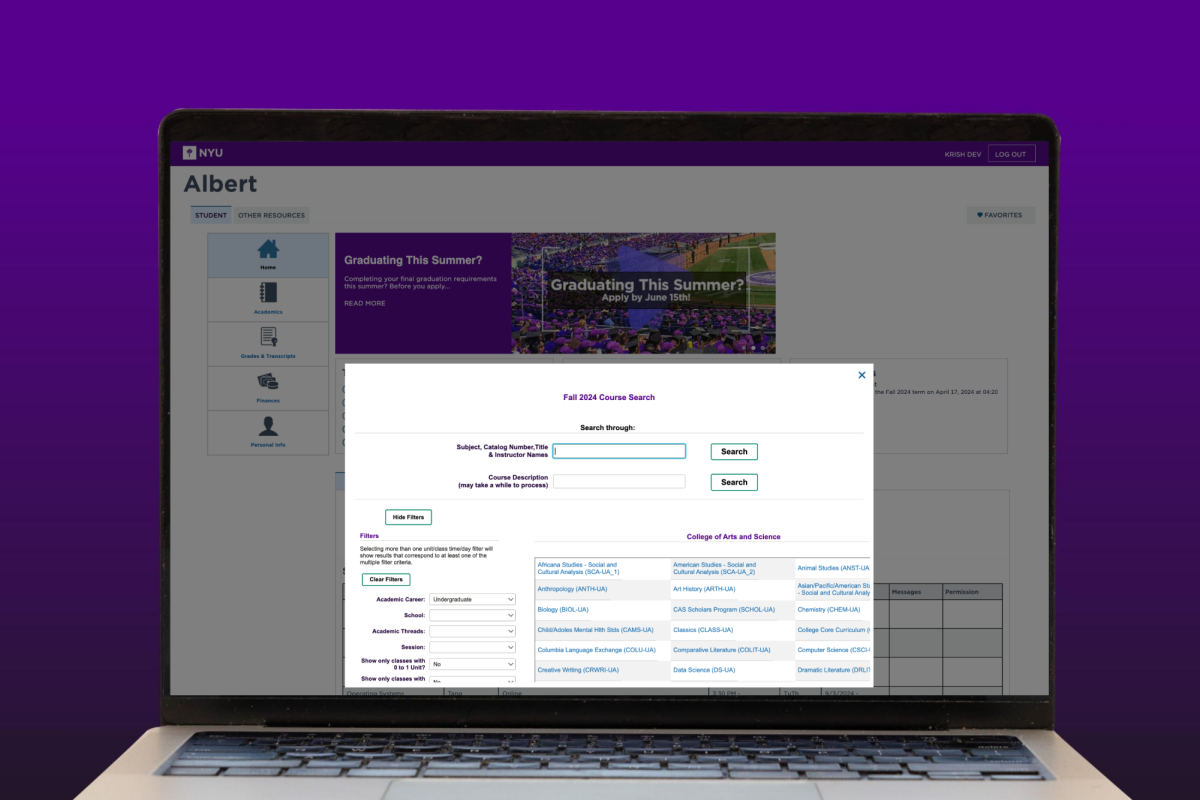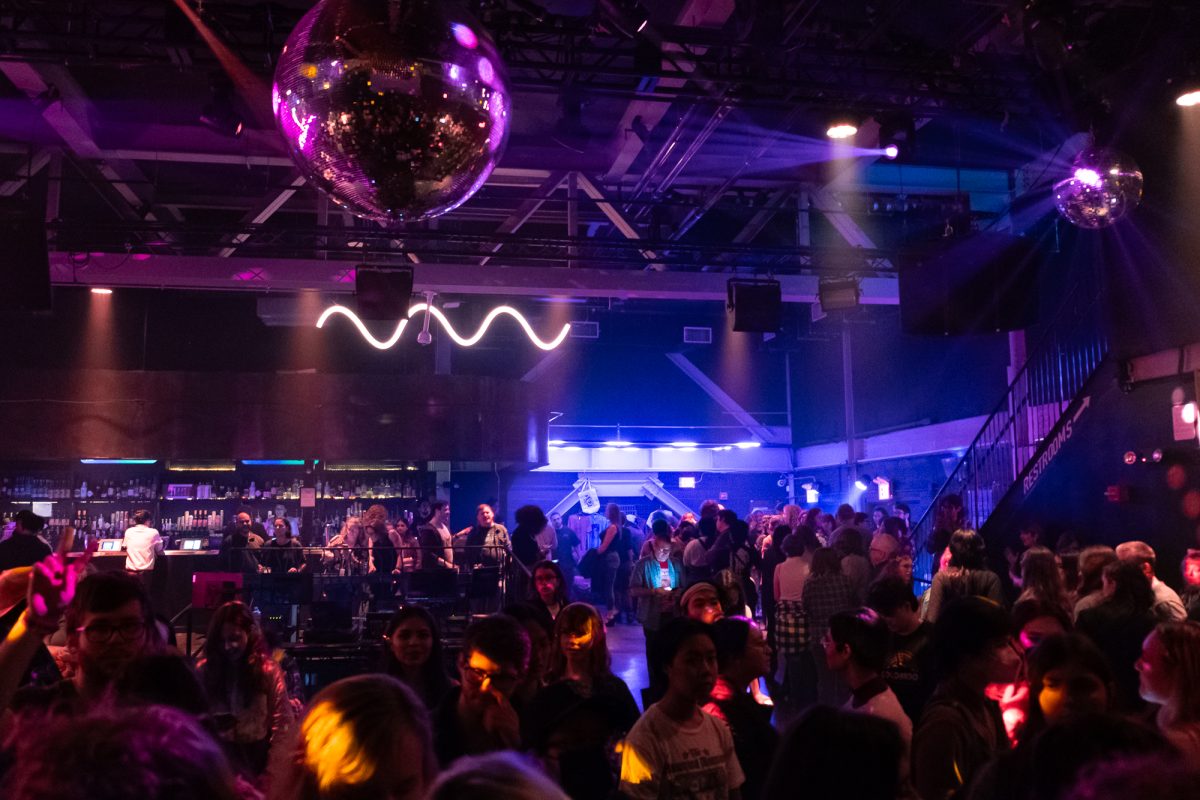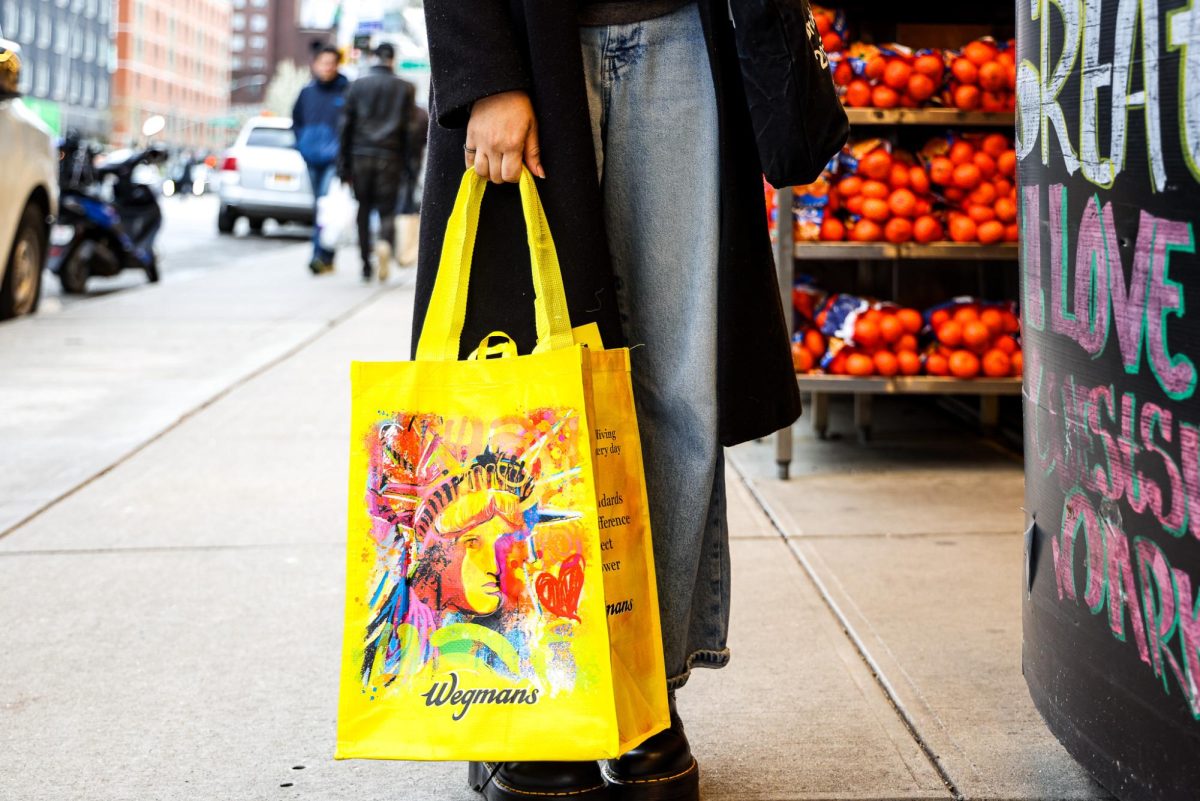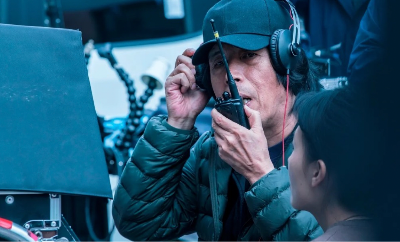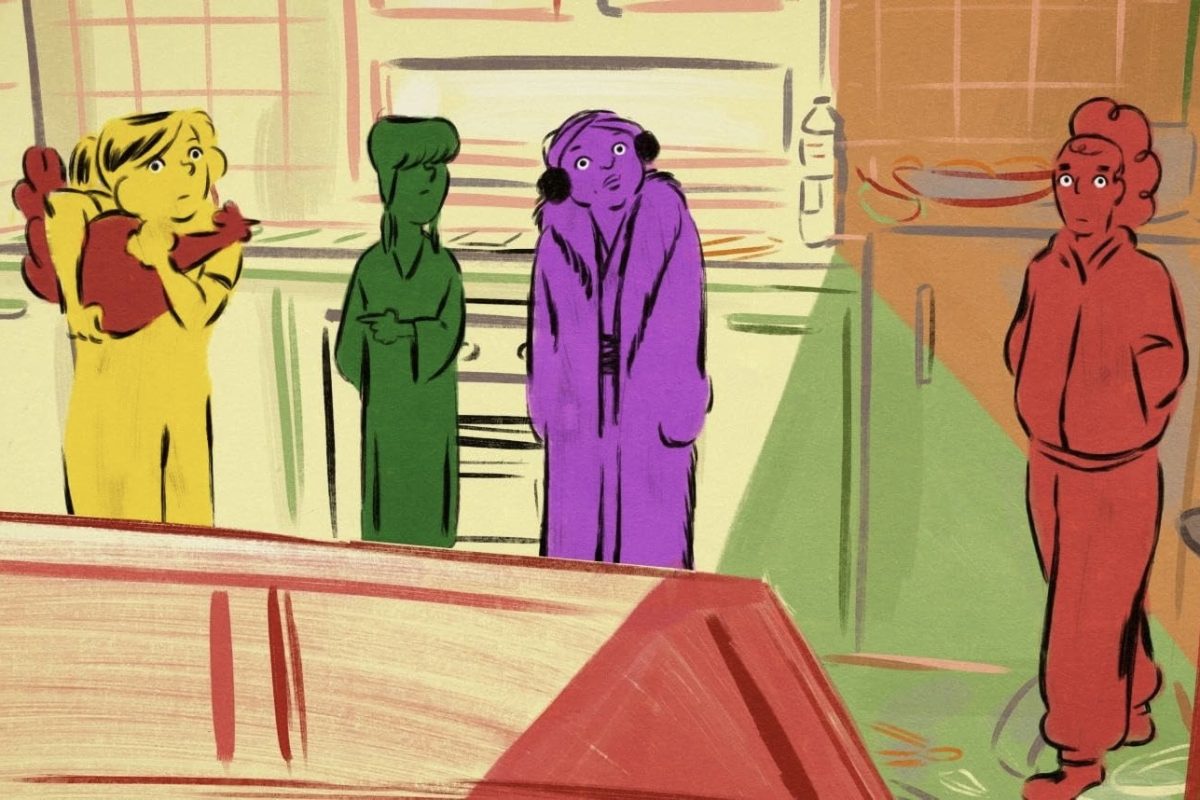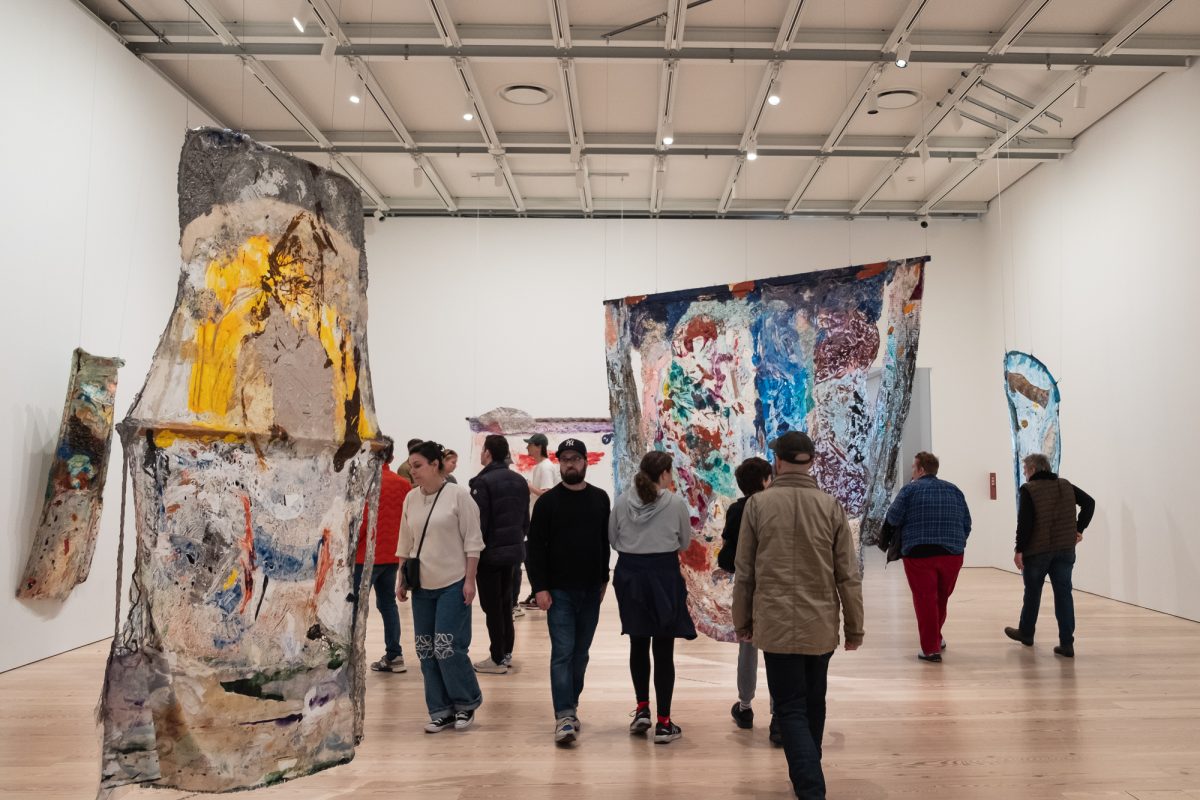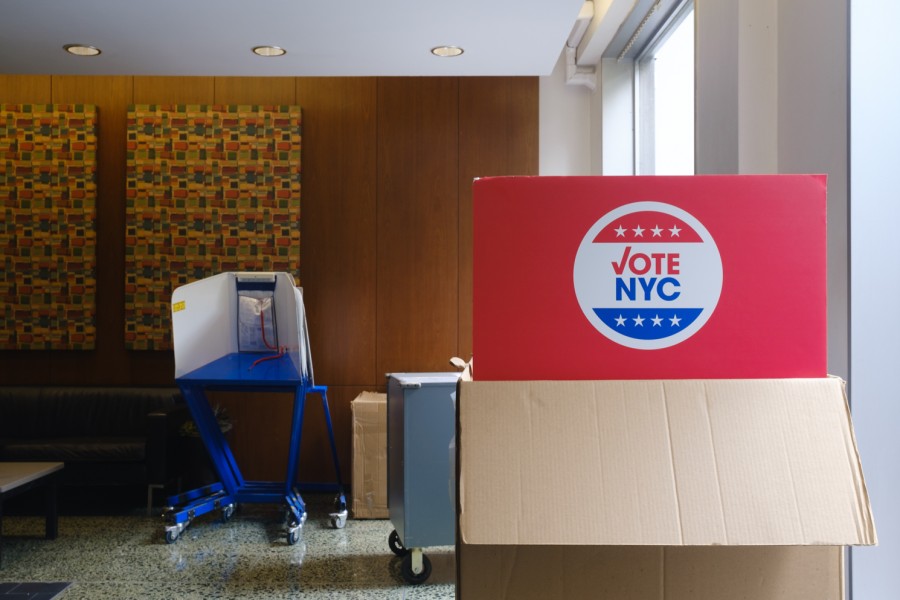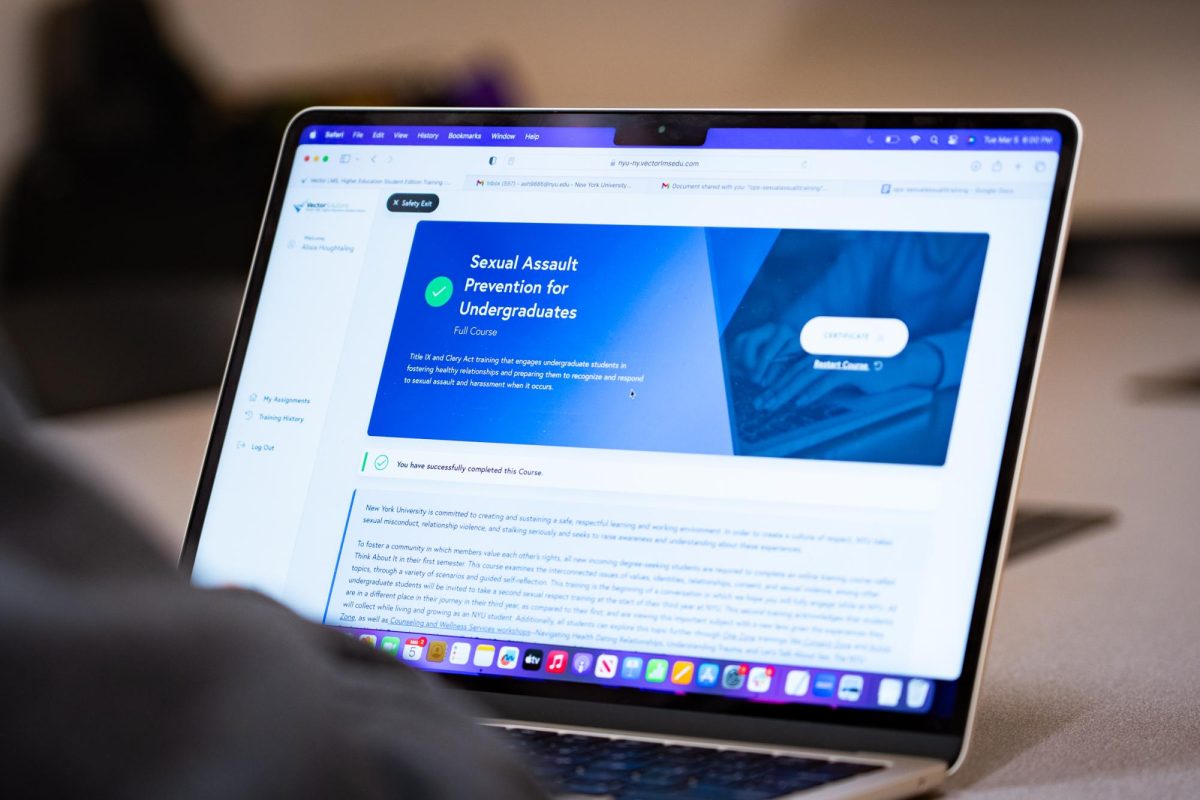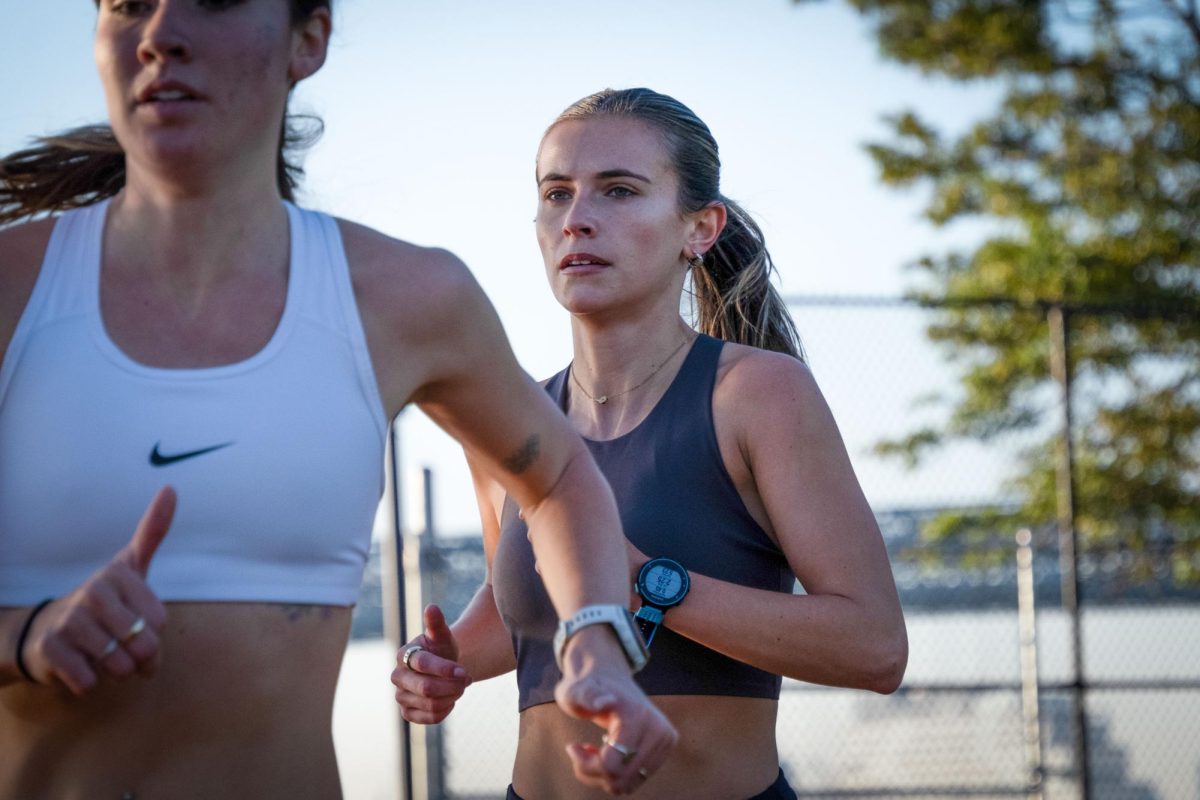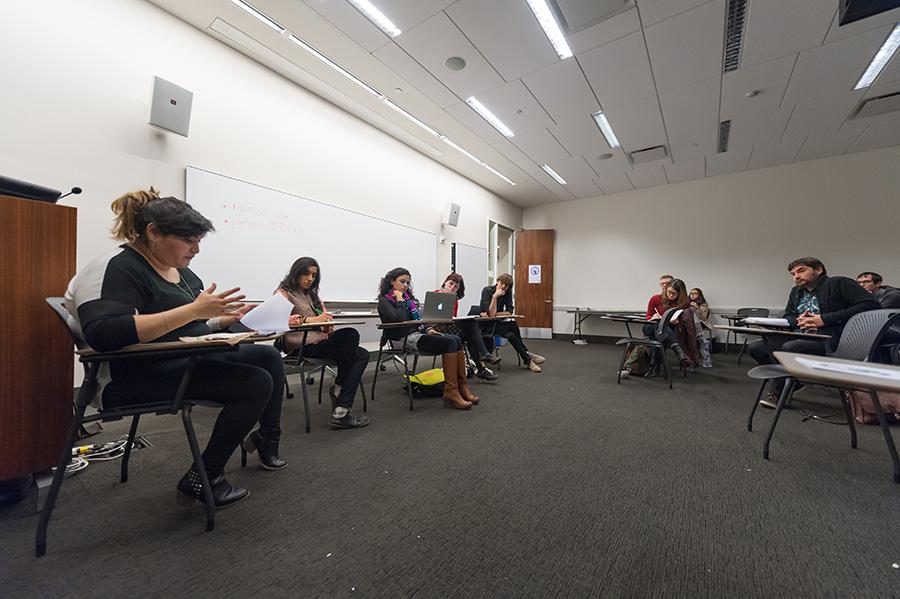GSOC meets to evaluate contract negotiations
Pam Nogales, far left, moderated the round table discussion among a panel of graduate students from the Academic Workers for a Democratic Union(AWDU). The discussion focused on the progress of the union by the AWDU representatives on the panel.
November 14, 2014
The Graduate Student Organizing Committee and bargaining committee members from the Academic Workers for a Democratic Union met to discuss the union reformers’ progress in contract negotiations on Nov. 13.
In a union election on Sept. 17, reformers won a majority position within the bargaining committee after campaigning on the platform for a fair contract and increased transparency in union operations. Since this election, the AWDU has unsuccessfully tried to develop a suitable contract for NYU graduate workers with the university.
In the current fight for a fair contract, Steinhardt doctoral student Ayesha Omer, a member of the GSOC bargaining committee, said she believes sustaining a transparent community is key to AWDU’s progress.
“I think we’re committed in first and foremost building the community,” Omer said. “Something that we have already done is to have openness and transparency.”
When the potential for an academic strike was discussed, GSAS student David Klassen, a bargaining committee member, used a 2005 academic strike as evidence the having one likely would not get the university’s attention and will not help AWDU.
“Because we’re in contract negotiation, a possibility for a strike has been talked about a lot,” Klassen said. “One of the practical things we’ve learned is that academic strikes are not the same as factory strikes, because we can’t make them stop producing commodities.”
GSAS student Ella Wind discussed other methods of developing effective social movements grounded in labor.
“We need to be engaged in unions to actually push the labor movement out to more broader social issues,” Wind said. “We can really see that having the rank-and-file would be the basis of who is helping to shape the vision of the union.”
Wind said strong debate with students and faculty about the union’s methods of negotiation will strengthen any potential contract.
“The rank-and-file are the ones who are materially motivated by a good contract,” Wind said. “So when they’re the bulk of the union, I think that’s when you get a most satisfactory contract and something that people are engaged in fighting for.”
Omer added that the union’s open bargaining sessions are opportunities for graduate student workers to help AWDU develop a fair contract and strong community within the union.
“At the heart of the bargaining sessions is what members say,” Omer said. “It is through their testimonials on specific graduate student worker issues that the momentum and the impact of our sessions is generated.”
Pamela Nogales, a third-year PhD GSAS student, said this event should shed light on the current negotiation progress and encourage students to become more involved in the efforts of the union.
“I think a lot of people have heard about the union but not a lot of people know what’s been going on lately,” Nogales said. “This is really a big left effort for NYU, and hopefully some folks here will be interested in contributing to the union effort.”
Email Stephanie Grella at [email protected].





